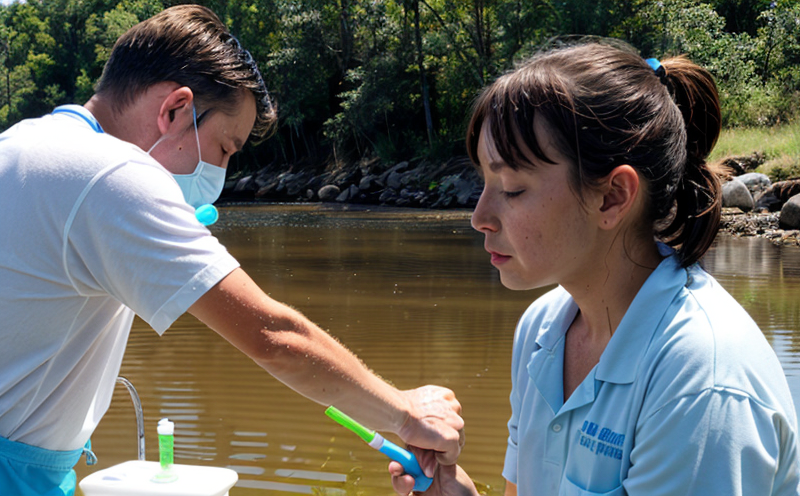EPA 160.2 Total Dissolved Solids TDS Test in Water
The EPA 160.2 Total Dissolved Solids (TDS) test is a critical analytical procedure used to measure the concentration of all dissolved substances, including salts and organic compounds, in water samples. This test is essential for ensuring compliance with regulatory standards set by the Environmental Protection Agency (EPA), particularly in sectors such as drinking water treatment facilities, industrial wastewater discharge monitoring, and agricultural runoff control.
The TDS measurement provides a general indication of the purity of water and helps identify potential sources of contamination. By quantifying total dissolved solids, this test supports regulatory compliance, process optimization, and environmental stewardship. The EPA 160.2 method is widely recognized for its precision and reliability in assessing the quality of water samples.
The testing procedure involves several steps: collection of representative water samples, preparation using appropriate techniques to prevent contamination, and analysis through precise instrumental methods like conductivity meters or gravimetric analysis. Results are reported as milligrams per liter (mg/L) which reflects the total mass of dissolved solids present in a given volume of water.
The importance of this test cannot be overstated, especially considering its role in safeguarding public health and protecting aquatic ecosystems. Regulatory bodies like the EPA mandate TDS testing to ensure that drinking water supplies meet safety standards, while industries rely on it for process control and waste management purposes. Accurate and consistent measurement is crucial for maintaining high-quality water throughout various stages of production and distribution.
Our laboratory adheres strictly to the EPA 160.2 protocol, ensuring accurate results through rigorous quality assurance measures and state-of-the-art instrumentation. We employ certified personnel trained specifically in TDS testing methodologies, guaranteeing reliable outcomes that can be trusted by clients across diverse industries.
In summary, the EPA 160.2 Total Dissolved Solids test is a cornerstone of water quality assessment, providing actionable insights for maintaining compliance with environmental regulations and enhancing operational efficiency within industrial settings.
Industry Applications
- Determining compliance with drinking water standards set by the EPA
- Monitoring industrial wastewater discharge to meet regulatory limits
- Assessing agricultural runoff impacts on local water bodies
- Supporting process control in various manufacturing sectors requiring high-purity water
- Evaluating raw water quality at treatment facilities before purification processes
- Facilitating environmental impact assessments and mitigation strategies
The EPA 160.2 TDS test plays a pivotal role in ensuring that industries operate sustainably and responsibly, contributing to overall ecosystem health.
Why Choose This Test
- Precision: Utilizes advanced analytical techniques like conductivity meters which provide accurate measurements.
- Compliance: Ensures adherence to strict EPA standards, thereby reducing legal risks associated with non-compliance.
- Consistency: Maintains consistent results across multiple samples and testing batches through standardized procedures.
- Reliability: Delivers dependable data that can be used for making informed decisions about water quality management.
The EPA 160.2 Total Dissolved Solids test offers unparalleled precision, ensuring accurate determinations of total dissolved solids in water samples. This reliability fosters trust among stakeholders and supports effective decision-making processes.
Competitive Advantage and Market Impact
- Achieving Regulatory Compliance: By consistently meeting EPA requirements, our clients can avoid costly fines and penalties while enhancing their reputation for environmental responsibility.
- Enhanced Operational Efficiency: Accurate TDS measurements help optimize water treatment processes, leading to reduced operational costs and improved resource utilization.
- Informed Decision-Making: Reliable data enables strategic planning regarding water quality improvements and sustainable practices.
- Better Customer Relations: Demonstrating commitment to environmental stewardship through rigorous testing builds stronger relationships with stakeholders.
The EPA 160.2 Total Dissolved Solids test equips businesses with the tools necessary to stay ahead in a competitive market, fostering both compliance and innovation while promoting sustainable practices.





